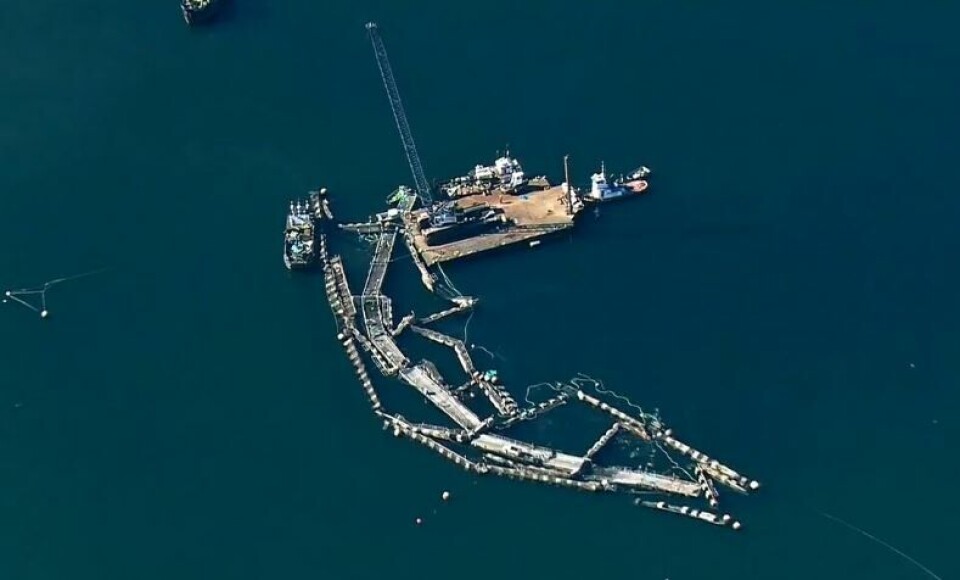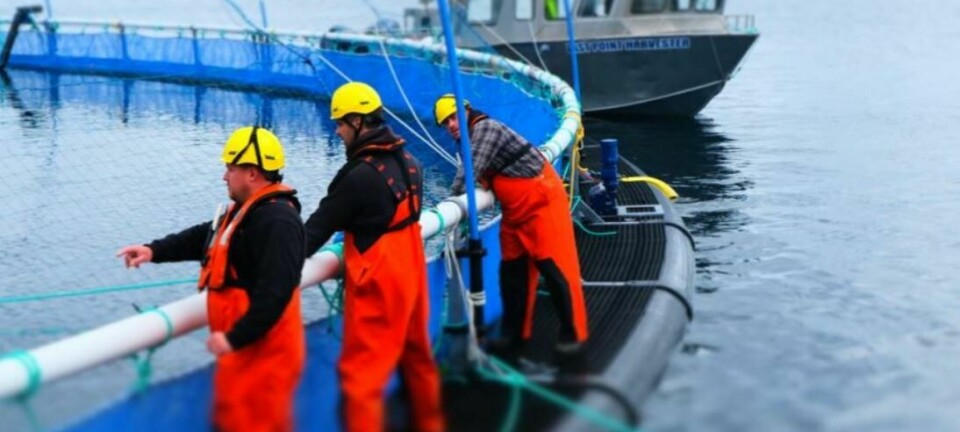
Cooke slams 'inaccurate' report on US farm collapse
Embattled salmon farmer Cooke Aquaculture Pacific has criticised Washington state’s multi-agency draft report on its Cypress Island net pen collapse, pointing out what said were "numerous factual inaccuracies that led investigators to leap to erroneous conclusions".
The investigators have been looking into the complete failure of Cooke's No.2 at Cypress Island last August, when around 160,000 Atlantic salmon escaped into Puget Sound.

“Cooke Aquaculture was shut out of this investigation by the state agencies,” said Cooke press spokesman Joel Richardson. “As a result, investigators with limited experience in aquaculture or net-pen operations have produced an inaccurate and misleading document that appears to be intended to fuel the push by aquaculture opponents to put Cooke out of business in Washington state.”
Counted each fish
In a statement, Cooke said the state accused it of overestimating the number of fish it recovered from the collapsed nets, and that, in fact, Cooke employees counted each fish as it was recovered under the state’s supervision. Cooke said the report’s estimate, meanwhile, was based on a flawed estimate of the average weight of the recovered fish.
Cooke also said the release of the final report, “2017 Cypress Island Atlantic Salmon Net Pen Failure: An Investigation and Review” - which was due at 11am local time on Tuesday - was timed to influence the Legislature’s ongoing deliberations about bills related to aquaculture, including proposals that would effectively ban salmon farming in Washington.
Three days for feedback
The Canadian-owned company said it was given just three days to provide feedback on a 266-page draft, and was instructed not to dispute the report’s analysis or conclusions. It added that Tuesday's press conference to launch the report was announced three hours after the agencies received Cooke’s comments.
“We provided substantive comment back to the agencies under an unfairly brief timeline to address the report’s major factual errors and omissions about what occurred at our facility last August,” said Richardson. “We cooperated fully with the investigation and stood ready to provide expertise, background and context to help the investigators in their work. Unfortunately, we don’t believe the public or lawmakers are getting a complete and accurate picture from this report.”
Blanket assumptions
He said the questioning of Cooke’s accounting of fish removed from the net pen structure was the most egregious – but not only – example of the report’s inaccuracy. Another was the blanket assumptions about the condition of the nets. (See Mussels may have caused Cooke farm collapse)
“We acknowledge that the site fell behind in net hygiene prior to the mooring failures in July (a few weeks before the farm's collapse). However, Cooke provided the investigators extensive documentation of the washing performed at Site 2 after the July incident,” Richardson explained. “Although the report is correct that mussels were present in the bottom of the nets, the investigative panel lacked the expertise to make that judgment about the relationship between fouling and drag and did not rely upon alternate expertise when forming the conclusions reflected in the report.”
Neither accurate nor objective
Cooke is also unhappy that it was "excluded from meaningful participation" in the investigation after only a few weeks, but two Native American tribes which have repeatedly called for the ban of Cooke’s operations were given full access to the process and allowed to provide comments and observations during the deliberations.
“Excluding Cooke but including net-pen opponents stacks the deck against Cooke,” said Richardson. “Tribes, lawmakers, Cooke, the public – we all deserve to know the truth, and this report should be driven by a full and accurate understanding of the facts. Unfortunately, this document is neither accurate nor objective.”
Cooke's 13-page response to the draft report can be read here.





















































